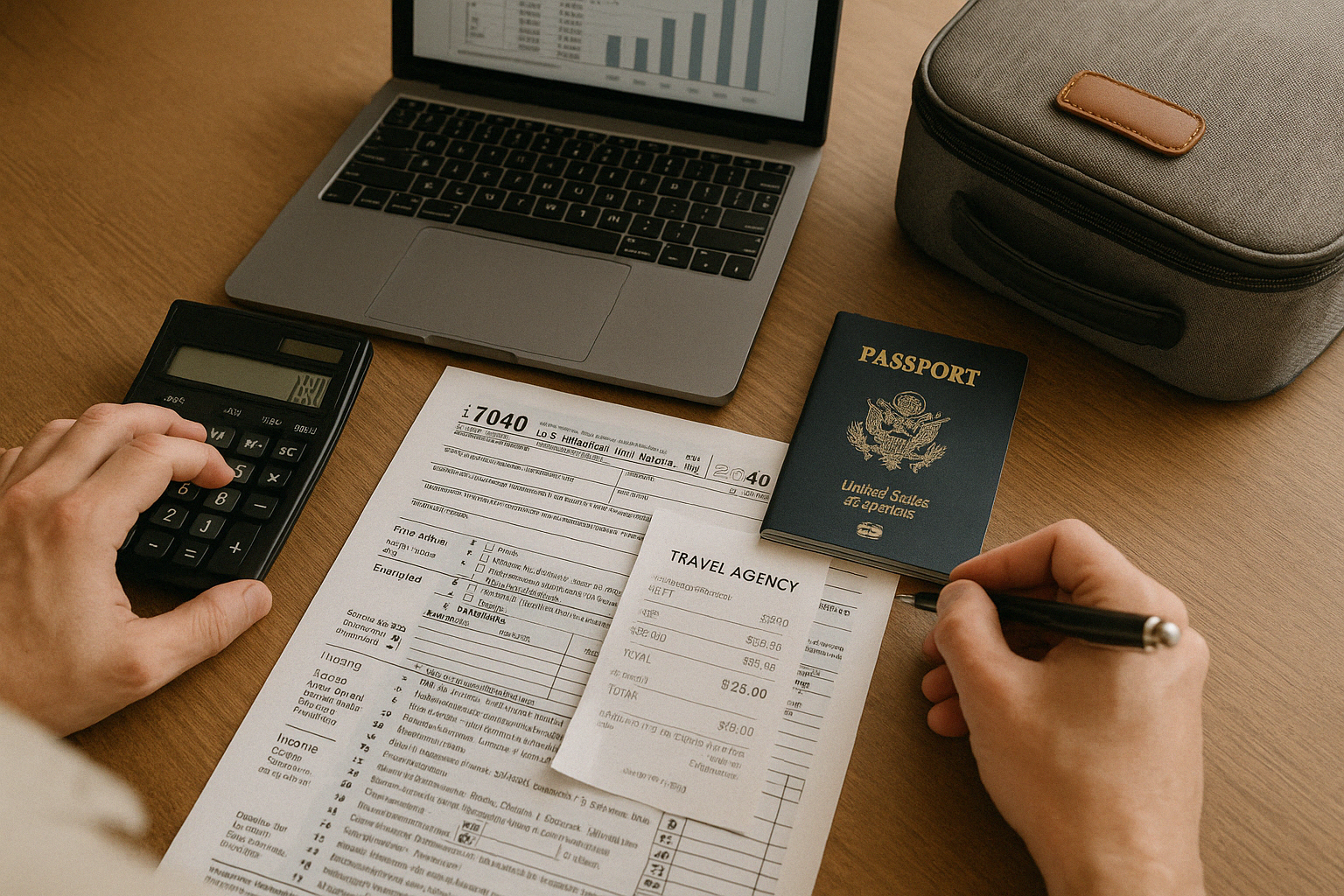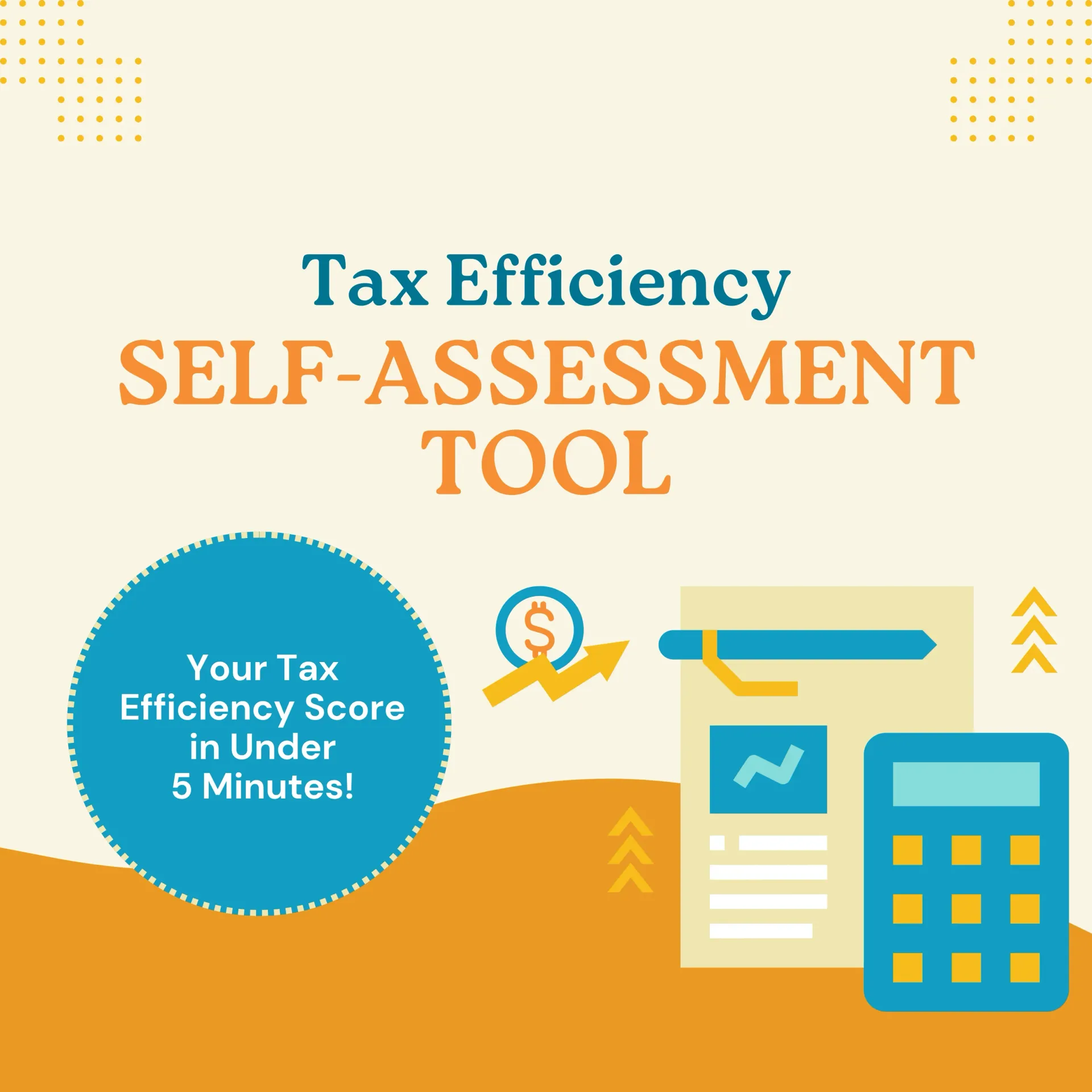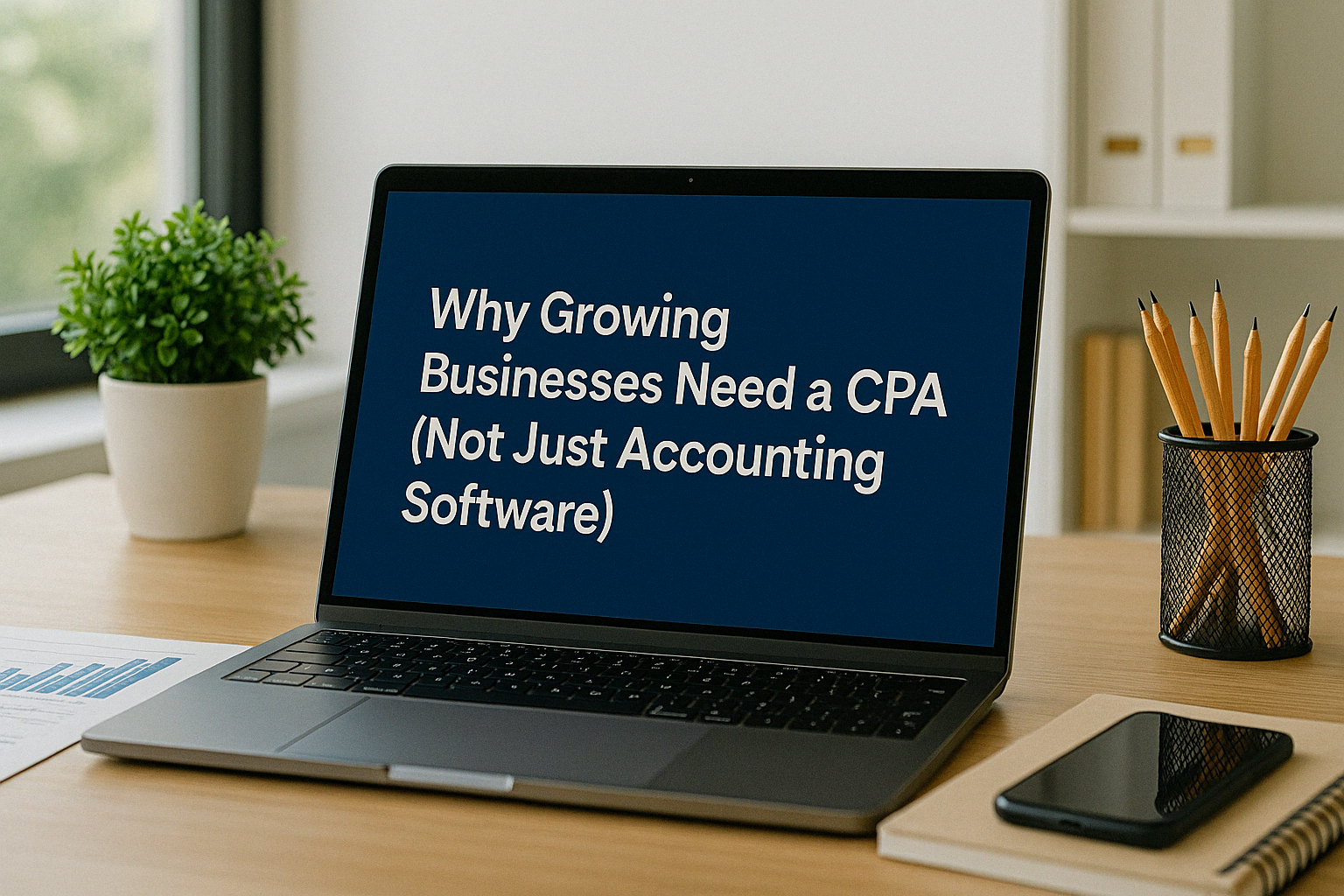How to Deduct Business Travel Expenses Without Raising IRS Red Flags

When it comes to business travel tax deductions, getting the most out of your write-offs without waving a big red flag at the IRS is a bit of an art form—and a science. The line between legitimate business travel deductions and what the IRS might see as a personal getaway can get blurry fast. So let’s break down how to keep things above board, maximize your deductions, and avoid headaches like audits or disallowed expenses.
In this guide from Straight Talk CPAs, we’re covering everything from IRS rules for travel deductions to tips for recordkeeping, what counts as
deductible travel expenses, and how to steer clear of IRS audit triggers. Whether you're a solo entrepreneur, freelancer, or small business owner, you'll walk away knowing how to document your travel properly and still enjoy the savings.
What Counts as Business Travel?
Before writing off anything, it helps to know what actually qualifies. According to IRS guidelines, business travel must be ordinary and necessary, and it must take you away from your tax home (your regular place of business) for longer than a typical workday.
Examples That Pass the IRS Smell Test:
- Attending a conference in another state related to your industry
- Traveling to meet with clients, vendors, or partners
- Visiting a new business location or conducting market research
If you’re mixing business with pleasure, that’s okay too—but only the business portion is deductible. For instance, a five-day trip to Miami with two days of meetings and three days on the beach? Only those two business days qualify for deductions.
Deductible Expenses: What's Fair Game?
Here are the common travel expenses the IRS typically allows:
- Airfare or train tickets
- Hotel accommodations (only for business nights)
- Rental cars, taxis, ride shares
- Meals (usually 50% deductible)
- Tips related to travel services
- Baggage fees, internet access, business phone calls
- Mileage, if you’re using your own car (at the current IRS mileage rate)
Let’s say your company sent you to New York for a three-day financial seminar. Your flight, hotel for three nights, cab rides to the event, seminar registration, and half the cost of your meals are all fair game.
Red Flags That Can Trigger an Audit
The IRS knows that travel expenses are easy to abuse. That’s why certain behaviors make their radar light up:
- Vague travel reasons ("general business development" doesn’t cut it)
- Lack of documentation or missing receipts
- Claiming excessive travel that doesn't match your business model
- Combining lavish entertainment and travel with no clear business need
The safest move? Be detailed. For every trip, document who you met, what you discussed, and how it ties into your business. A short calendar note or saved email can go a long way.
How to Properly Document Business Travel
If you’re going to deduct it, prove it. Here’s what to keep:
1. Receipts for all expenses
Save every hotel invoice, boarding pass, rental agreement, and meal receipt. Even digital copies work.
2. A clear itinerary
Include dates, destinations, meeting agendas, and participants. Tools like Google Calendar or TripIt can help track this automatically.
3. Business justification
Write down the purpose of the trip and its value to your business. Doesn’t have to be long—just clear.
4. Mileage logs
Use apps like MileIQ or QuickBooks Self-Employed to track car travel accurately.
Real-Life Example: What It Looks Like in Practice
Let’s say a consultant at Straight Talk CPAs flew to Chicago to meet a new client. They stayed two nights, had three business meals, and visited the client's office for onboarding and strategic planning.
They kept:
- Their flight receipt and hotel invoice
- Notes from the meetings (via Google Docs)
- A few photos of whiteboard sessions for their records
- Digital receipts for meals and Uber rides
When tax season came around, there were no questions asked. Everything matched up. Clean, simple, IRS-approved.
What About Travel With Family or Friends?
Bringing the spouse or kids along? That’s fine—but their expenses? Not deductible.
Unless your spouse is an actual employee attending business meetings with a real role, their plane ticket and meals are on you. Same goes for leisure activities like sightseeing or show tickets.
Just split the expenses appropriately:
- Hotel room for one? Deductible.
- Family suite? Only deduct what a single room would have cost for you alone.
Quick Tips to Maximize Your Deductions (Without Risk)
- Plan trips around real business purposes
- Book flights and hotels under your business name when possible
- Use a business credit card to keep things separate
- Write notes on receipts right after the event (e.g., "Dinner with X client to discuss project Y")
- Avoid claiming weekends or extended stays unless justified
Final Thoughts: Play It Smart, Stay Compliant
Business travel deductions can offer real tax relief, but they come with strings. The IRS isn't out to ruin your vacation, but they do want to make sure you’re being honest. And let’s be honest—getting audited is a drag.
The good news? With clear documentation, reasonable expenses, and a bit of know-how, you can maximize your travel deductions without breaking a sweat or crossing the line. At Straight Talk CPAs, we're all about keeping things transparent, legal, and smart—so your finances stay in the clear and your savings stack up.
If you're unsure whether that weekend getaway to Vegas for a "networking event" is tax-deductible—yeah, give us a call first. Better safe than flagged.
Discover Your Tax Savings Score in Minutes!


Salim is a straight-talking CPA with 30+ years of entrepreneurial and accounting experience. His professional background includes experience as a former Chief Financial Officer and, for the last twenty-five years, as a serial 7-Figure entrepreneur.




